The first week of the spring term didn’t launch in quite the smooth fashion we were expecting. We hope that despite the disruptions you enjoyed meeting your students, and that they’re excited about the learning they’ll do in your courses. Although many students begin the semester experiencing positive emotions about their classes, some may feel anxious about the kinds of work we might assign or wonder whether they belong in such a course or even in college at all.
In addition to continuing to get to know our students, both as people and in terms of what prior knowledge they’re bringing to the course, we also need to get a sense of how they’re feeling about the kinds of work we’ll ask them to do. For example, some students have math anxiety or writing anxiety. They may have had negative experiences in the past that affect their confidence. Some courses have a reputation for being very challenging, so students are afraid of them before they even enroll.
When students are anxious, it’s harder for them to learn. For example, Daker et al. (2021)found that math anxiety in first-year students predicts both STEM avoidance and lower grades in STEM courses, independent of students’ math ability. So it’s helpful when we take the time to find out how students are feeling, address common concerns, normalize struggle, and help students build confidence over time. Even in a math course, you can start with a bit of informal reflective and expressive writing about students’ past experiences with the subject, what they’re expecting from the learning experience, and how they’re feeling about it. They can share this with you only, or you could have some class discussion about it. If your class is very large, a survey will also work.
Some ways of finding out how students are feeling can double as ways of acknowledging and addressing their concerns. For example, a few minutes of writing or an in-class poll followed by a short discussion can help show students that, if they’re feeling nervous, they’re not alone in that, and that you are aware of and care about how they’re feeling about the course work. You can share the ways your course is designed to help them build knowledge and skills over time. You can explain that you and their classmates are there to help, and that you have confidence that if they put in the work, they can succeed.
For example, if students are nervous about writing research papers for an academic audience, you can let them know that writing is not only a product but also a process. Most of the published writing they read has gone through planning, drafting, feedback, revision, proofreading, and editing. It doesn’t just come out perfectly on the first try. And you can explain that your course is designed to take them through that process: They will build their project over time rather than trying to complete all parts at once at the last minute and without feedback.
Sometimes students might feel like outsiders or even imposters in a class, major, or program. In Relationship-Rich Education, Felten and Lambert (2020) explain that in order to learn to their full potential, students need to feel that they belong. One step toward that sense of belonging is a “relentless welcome” facilitated in all aspects of the college experience—especially classroom experiences. In other words, it’s not enough to make welcoming gestures at orientation or on the first day of a new class; we need to follow through consistently and in many types of interactions.
To foster belonging in our teaching, we can keep our classroom climate warm and welcoming in a number of ways. We can check in with students regularly, to see how they’re doing (with the material but also in general). We can cultivate community by structuring lots of peer and group interaction. We can remind them that we have confidence in their ability to succeed (high expectations) and have built in adequate support to ensure their success.
If you’d like to meet with us to discuss how to create conditions most conducive to learning, you can email us at pro-teaching@fsu.edu. We look forward to working with you!
SPRING FACULTY & TA READING GROUPS
The Center for the Advancement of Teaching is offering the following three faculty and two graduate student (TA) reading groups this semester. Each group will meet once a week for three weeks to discuss the books in sections. We hope you can join us! Please register here.
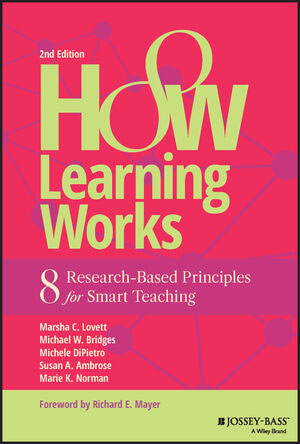
Thursdays: 2/1, 2/8, 2/15
2:00–3:30 p.m. in 432 DIF
Print copy, delivered through interoffice mail
The newly updated edition of this important book translates decades of scientific literature into practical advice, introducing eight general principles of how people learn. The authors draw on cognitive, developmental, and social psychology, as well as educational research, anthropology, etc. The discussion spans issues from memory to motivation, integrating theory with real classroom examples. Participants will develop strategies for strengthening their own teaching through the application of these principles.
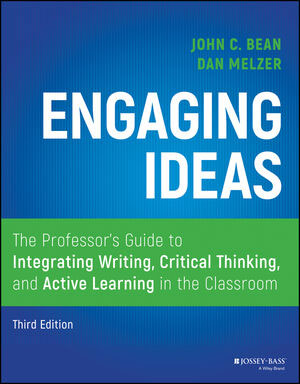
Engaging Ideas: The Professor’s Guide to Integrating Writing, Critical Thinking, and Active Learning in the Classroom
Fridays: 2/9, 2/16, 2/23
2:00–3:30 p.m. in 432 DIF
Print copy, delivered through interoffice mail
The newly revised third edition of John Bean’s best-selling classic will be the foundation of this reading group, in which we will discuss using writing as a mode of teaching and learning in any course. From formal writing projects to informal classroom activities, we will explore the ways writing can be used to help students improve as critical thinkers and effective communicators. Then, we will make plans to apply strategies Bean and Melzer describe in this new edition to enhancing writing instruction and active learning in our own courses.
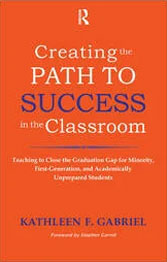
Fridays: 2/23, 3/1, 3/8
11:00–12:30 p.m. in Dirac Conference Room
Print copy, delivered through interoffice mail
Over the past few decades, extensive research has shown that we can enhance student learning by adjusting our teaching practices and the ways we structure our courses. But where do we start? Kathleen Gabriel’s book provides practical strategies for building our courses to ensure that more students learn more and more deeply. Gabriel offers concrete steps we can take to enhance student motivation, structure class time effectively, prompt critical thinking, design effective assignments, and create classroom climates that promote learning.
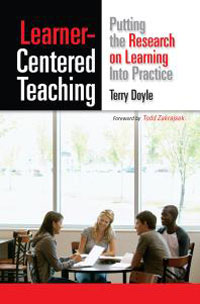
Fridays: 2/2, 2/9, 2/16
11:00–12:30 p.m. in Dirac Conference Room
E-book, available for free through FSU’s libraries
Note: This group is for graduate students only.
Recent decades have brought a wealth of research on learning and cognition. These developments are gradually making their way into work on best practices for the college classroom. Doyle’s Learner-Centered Teaching is a practical, comprehensive guide to strategies for making effective use of the research. When we adjust our classroom focus from teaching to learning, we make our own work more gratifying, and we can enhance our students’ learning experience as well as their mastery of material. In this group, graduate teaching assistants will discuss Doyle’s text and specific strategies and activities for enriching our own classrooms.
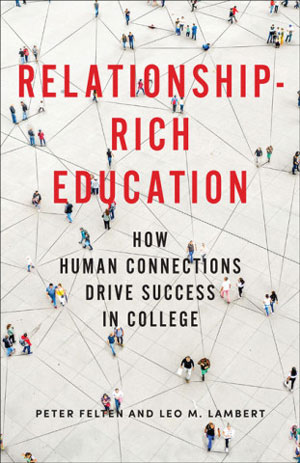
Thursdays: 2/1, 2/8, 2/15
11:00–12:30 p.m. in 432 DIF
E-book, available for free through FSU’s libraries
Note: This group is for graduate students only.
Peter Felten and Leo M. Lambert argue that education is not merely a series of transactions, but instead an opportunity for students to form a web of meaningful relationships that are vital not only to their academic success but also to their sense of belonging and self-discovery. They explain that social connection and belonging are not just pleasant extras in college, but prerequisites for learning, especially for powerful learning. The book provides examples and strategies for how institutions can foster richer learning environments, and the reading group will discuss ways we can shape our teaching to cultivate community and connection in our classrooms.



